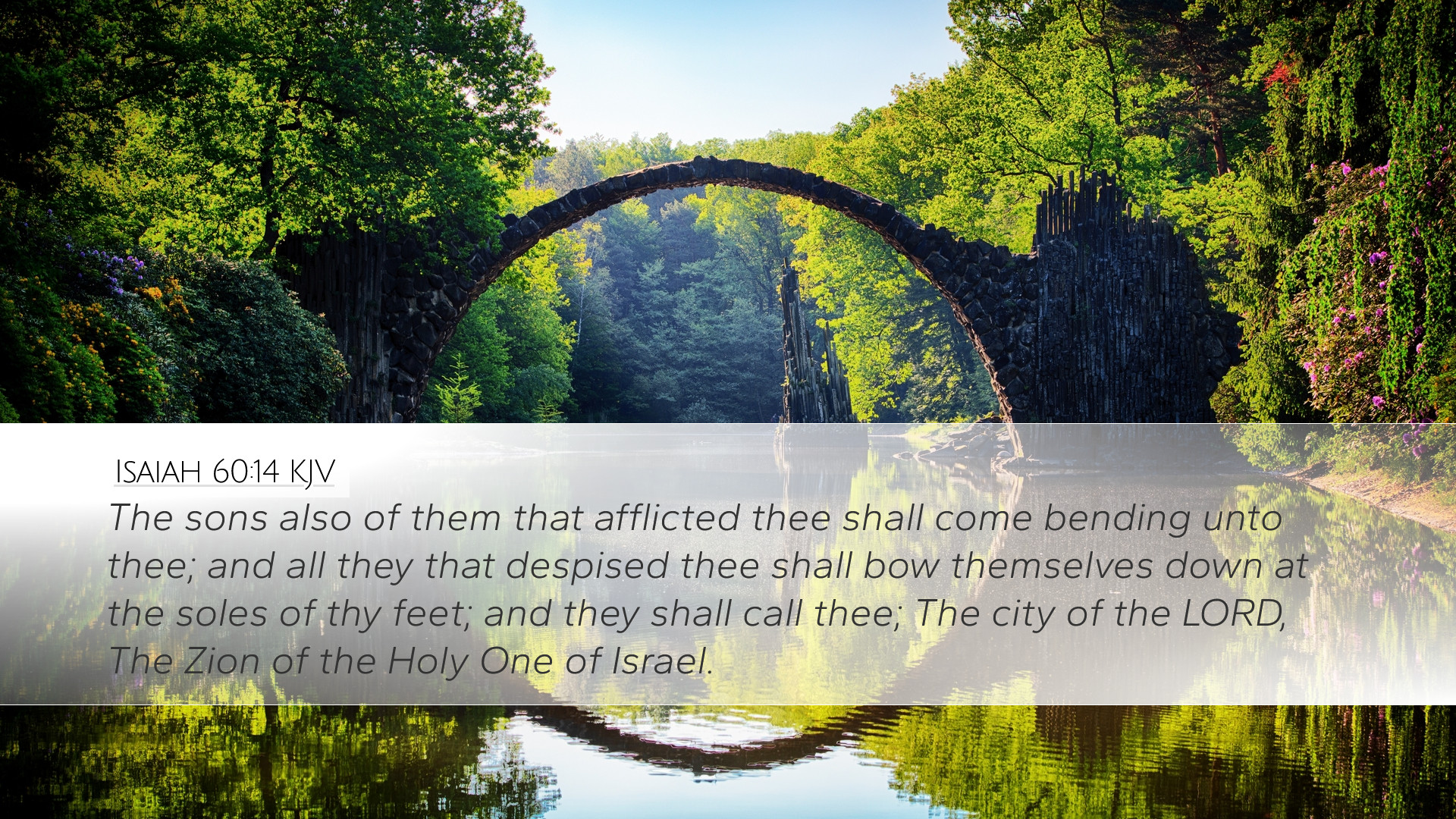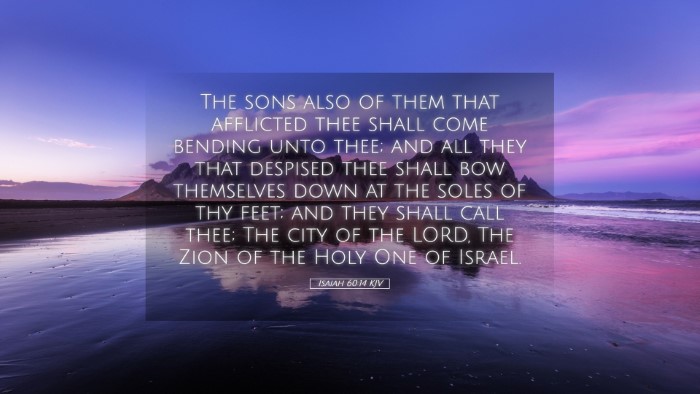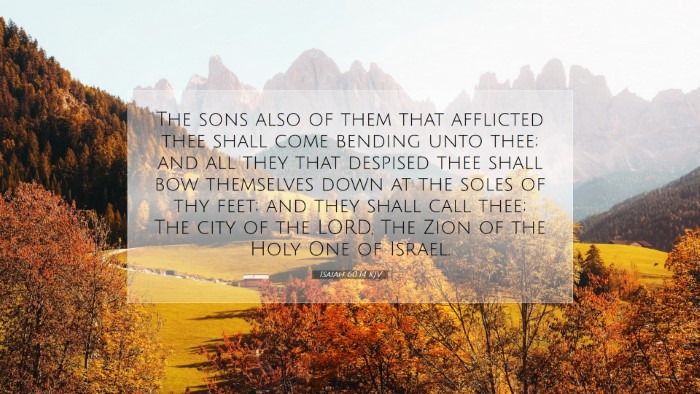Commentary on Isaiah 60:14
Isaiah 60:14 states, "The sons of those who afflicted you shall come bending to you, and all who despised you shall bow down at your feet; and they shall call you the City of the Lord, the Zion of the Holy One of Israel." This verse encapsulates the themes of restoration, redemption, and divine vindication, presenting a profound promise for the people of Israel amidst their suffering and oppression.
Contextual Overview
This prophetic declaration follows a series of comforting promises delivered by Isaiah regarding the future glory of Jerusalem. In this chapter, the prophet speaks of a time when the glory of the Lord will shine upon His people, manifesting in their restoration and prominence. The overarching narrative is one of hope, suggesting that God will bring about a transformative change that reverses the misfortunes experienced by Israel.
Insights from Commentaries
Matthew Henry's Commentary
Matthew Henry emphasizes the contrast between the past afflictions experienced by the Israelites and the future dignity that God will bestow upon them. He notes that the verse reflects God’s commitment to honoring those who have been humiliated by their oppressors. Henry notes:
- Divine Justice: The verse illustrates God’s justice; those who once afflicted His people will be humbled before them. This serves as a reminder that God sees and will rectify injustices.
- Restoration of Identity: The appellation "City of the Lord" signifies a restored identity where Israel, once despised, is now recognized and revered. This rebirth reinforces their covenant relationship with God.
Albert Barnes' Notes on the Bible
Albert Barnes elaborates on the prophetic nature of this verse, arguing that it embodies a promise to all Israel and, by extension, to believers today. He highlights several key points:
- Repentance and Recognition: Barnes suggests that the bowing down mentioned signifies a recognition of God's power in Israel’s favor. The former oppressors will acknowledge their fault and the sovereignty of God.
- Universal Scope: Barnes posits that the prophecy extends beyond the historical context to all nations. This speaks to the eschatological vision where all will eventually recognize God's chosen people and His redemptive plan.
Adam Clarke's Commentary
Adam Clarke focuses on the theological implications of this verse. He offers a Christological interpretation that points to the ultimate victory of Christ and the establishment of His kingdom. According to Clarke:
- Fulfillment in Christ: Clarke interprets the bowing down as a foreshadowing of the final judgment when all will recognize Christ’s lordship, aligning the verse with Philippians 2:10-11.
- Encouragement for the Faithful: The promise of the return of glory serves as an encouragement to the faith community, reassuring them of God’s unfailing plan and presence despite current trials.
Theological Implications
The theological richness of Isaiah 60:14 can be particularly meaningful to pastors and scholars, offering insight into God's redemptive nature and the assurance of divine justice. The verse serves as an illustration of the ultimate reconciliation between God and His people, highlighting themes such as:
- Hope in Despair: Even in times of oppression, hope remains alive through God’s promises.
- Restoration and Identity: The identity of God’s people is not defined by their suffering but by their relationship with Him.
- Universal Recognition of God’s Sovereignty: A future time when all will recognize and honor God’s chosen people as a testament to His glory.
Practical Applications
This verse encourages believers to reflect on their identity and the power of God to overturn adverse circumstances. The following applications can be derived:
- Embrace Identity in Christ: Believers should recognize that their worth is found in their relationship with Christ, much like Israel's identity is rooted in being the "City of the Lord."
- Hope amidst Oppression: Those facing difficulties can take solace in God’s promises, understanding that their current state does not dictate their future.
- Call to Justice: The scripture serves as a reminder for believers to advocate for justice and compassion in their communities, following God’s example in uplifting the downtrodden.
Conclusion
Isaiah 60:14 stands as a powerful testament of God’s intention to glorify and restore His people. Through the insights gathered from esteemed commentaries, it becomes clear that this verse not only points towards historical events for Israel but also holds profound relevance for believers today. As we meditate on this verse, may we find encouragement in the knowledge that God is committed to justice, restoration, and establishing His sovereignty through His faithful people.


